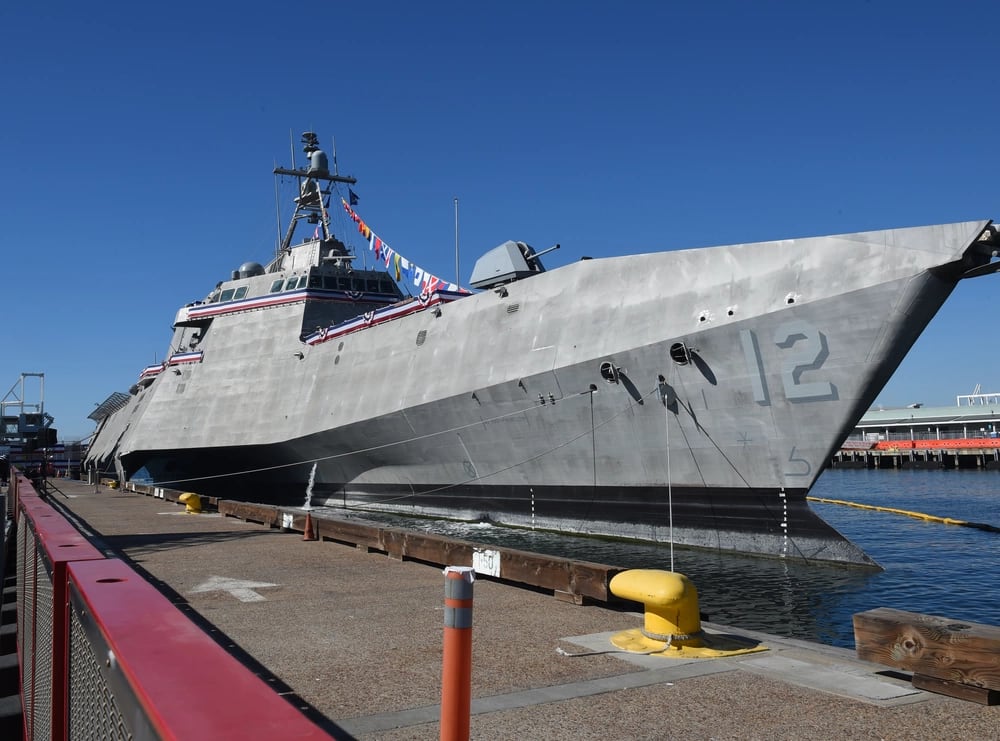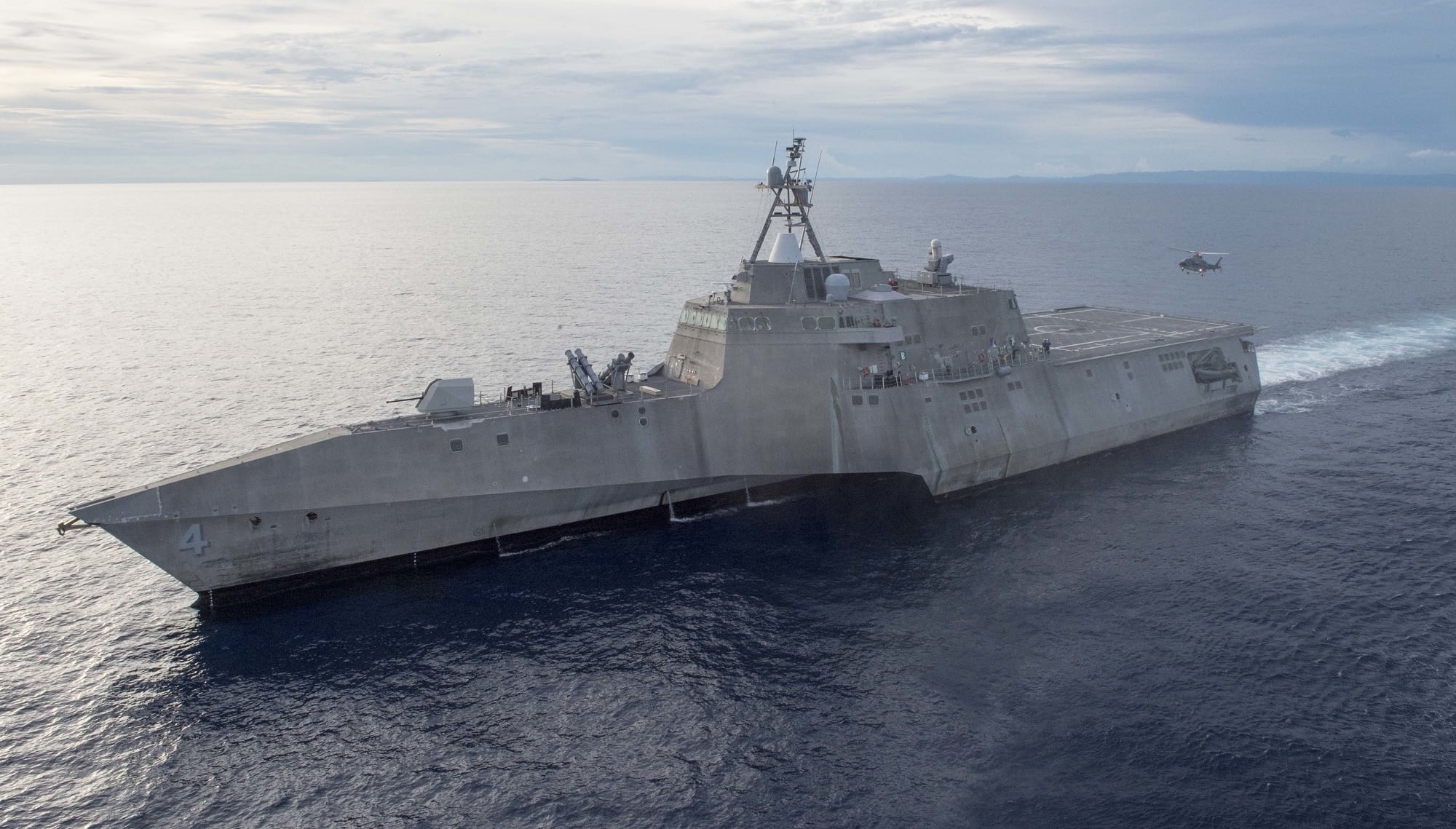The littoral combat ship Coronado was decommissioned in San Diego Wednesday, less than nine years after the pricey ship entered active service.
Before receiving its shadow box Wednesday, the Independence-class ship spent its career conducting operations before becoming a test and training ship.
It was commissioned in 2014 and saw its first deployment in 2016, cut short after it suffered an engineering casualty and had to return to Hawaii.
The following year, Coronado’s embarked crew was marooned in Singapore after revised LCS training standards left the Navy without a qualified crew to rotate aboard.
“Today we recognize the great contribution Coronado and its crew made in developing the operational concepts foundational to the current configuration and deployment of littoral combat ships,” Rear Adm. Wayne Baze, the ceremony’s guest speaker and commander of Expeditionary Strike Group 3 said, according to a Navy release announcing the decommissioning.
RELATED

“Thanks to Coronado, the future of LCS looks bright.”
Coronado’s final commanding officer, Cmdr. Spike Lamson, said Wednesday that the ship “had been the vanguard for proving the capabilities of the LCS platform and establishing the mission sets.”
“The dedication of her crews and supporting teams have guaranteed the future success of this class of ship and the crews that will operate them over-the horizon,” Lamson said, according to the Navy release. “I am proud to have served alongside her Sailors, and I am grateful for the opportunity to give Coronado the farewell she deserves.”
Once billed as the future of the fleet, the LCS program has been hindered by mission modules that haven’t materialized, as well as class-wide propulsion and hull crack issues that have plagued the Freedom and Independence LCS classes, respectively.
The LCS program was first announced more than 20 years ago, in November 2001, and was conceived and sold to lawmakers and the public as an ideal ship for a world in which the United States was the sole superpower.
But planners back then might not have been considering the possibility that the U.S. Navy would have to one day contend with conventional adversaries like China and Russia, and questions have since emerged about the ship class’s ability to survive a battle with a rival navy.
RELATED

The first two LCS, Freedom and Independence, have already been mothballed, and the third LCS, Fort Worth, is also slated for the chopping block.
Navy brass are trying to divest themselves of as many LCS as possible in order to free up funding for other priorities, a tacit acknowledgement that the LCS fleet has not done what it was originally envisioned to do.
Still, Navy leaders, including Chief of Naval Operations Adm. Mike Gilday, have said they are “bullish” on the LCS’s ability to provide presence in the West Pacific while conducting drug interdiction missions in the waters near South America and the Caribbean.
Geoff is the managing editor of Military Times, but he still loves writing stories. He covered Iraq and Afghanistan extensively and was a reporter at the Chicago Tribune. He welcomes any and all kinds of tips at geoffz@militarytimes.com.








